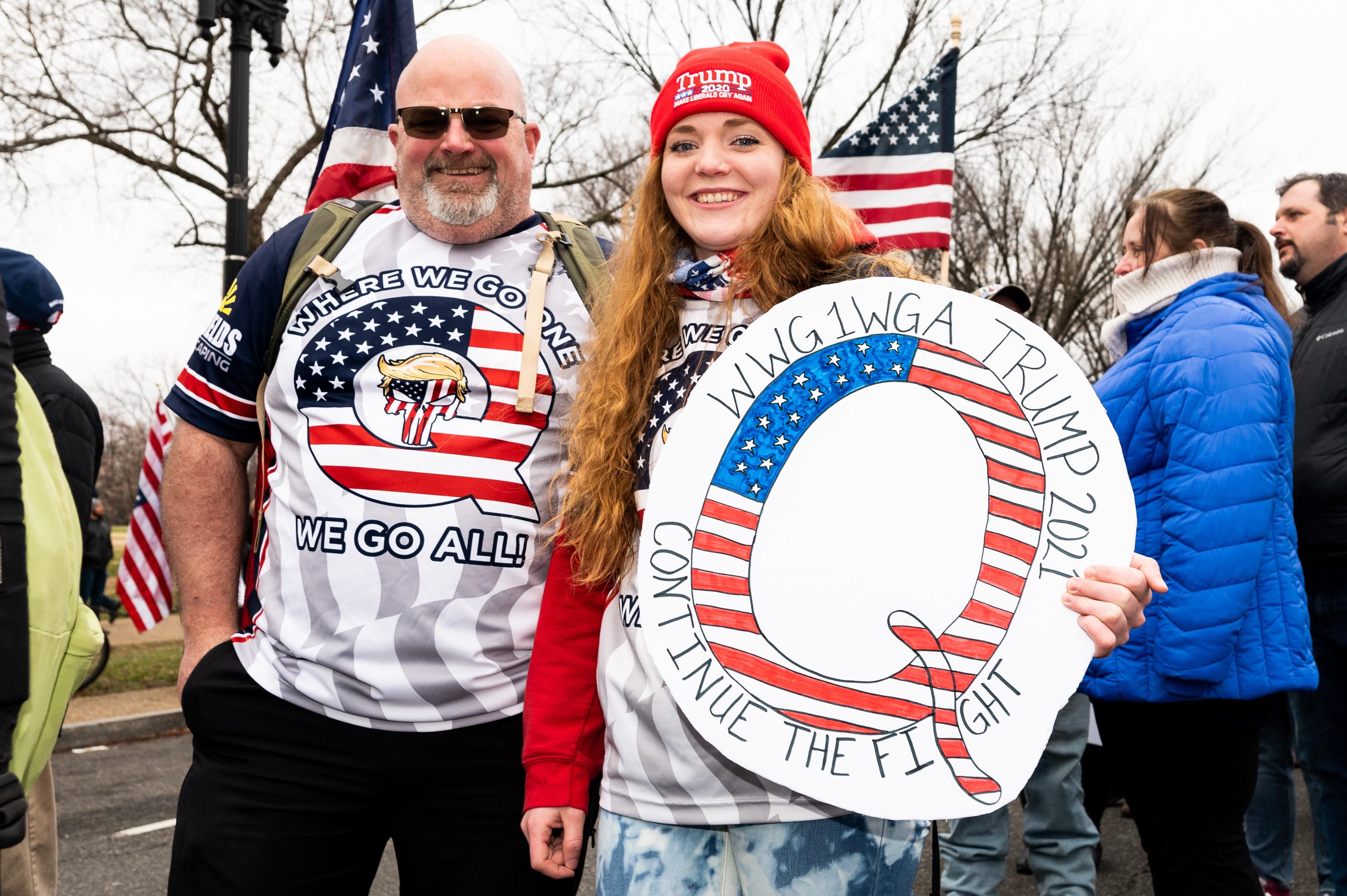News
January 12, 2021
70,000: Twitter has removed more than 70,000 accounts promoting the QAnon conspiracy theory, some of whose supporters were among the angry mob that stormed the US Capitol building last week. QAnon followers believe that President Trump — who has refused to denounce the movement — is fighting a secret war against a "deep state" of Satan-worshipping pedophiles.
13: Jihadists killed 13 soldiers after ambushing a military convoy in northeastern Nigeria on Sunday. The attack was claimed by the Islamic State West Africa Province group, now affiliated with the Islamic State after breaking away in 2017 from Boko Haram, the Nigeria-based militant organization that's extended its footprint across the Sahel in recent years .
10,000: China has pulled back at least 10,000 soldiers from its contested border with India, where troops from the two countries were killed last summer amid deadly skirmishes sparked by a decades-long territorial dispute. While the Chinese military — more wary of the harsh Himalayan winter than the Indians — plans to redeploy some of the troops to Tibet and Xinjiang, there's growing optimism that cross-border tensions will ease if the Indian army also scales back its presence in the disputed area.
10: Greenhouse gas emissions in the US dropped by over 10 percent over 1990 levels in 2020, the largest decline since World War II. A new study says the biggest drop was in transport, one of the hardest hit sectors by pandemic-related lockdowns. The incoming Biden administration says it will prioritize greenhouse gas emissions by immediately rejoining the Paris Climate Accord.More For You
- YouTube
Gotta maximize sleigh-holder value. #PUPPETREGIME
Most Popular
- YouTube
On Ask Ian, Ian Bremmer breaks down the steady escalation of US pressure on Venezuela and why direct military action is now a real possibility.
US President Donald Trump arrives to announce reciprocal tariffs against US trading partners in the Rose Garden of the White House in Washington, DC, USA, on April 2, 2025.
POOL via CNP/INSTARimages.com
From civil conflicts to trade wars to the rise of new technologies, GZERO runs through the stories that have shaped this year in geopolitics.
Ukrainian serviceman walks near apartment buildings damaged by Russian military strike, amid Russia's attack on Ukraine, in the frontline town of Kostiantynivka in Donetsk region, Ukraine December 20, 2025.
Oleg Petrasiuk/Press Service of the 24th King Danylo Separate Mechanized Brigade of the Ukrainian Armed Forces/Handout via REUTERS
Ukrainian intelligence services assassinated a senior Russian general on the streets of Moscow on Monday, detonating a bomb strapped to his car.
© 2025 GZERO Media. All Rights Reserved | A Eurasia Group media company.
